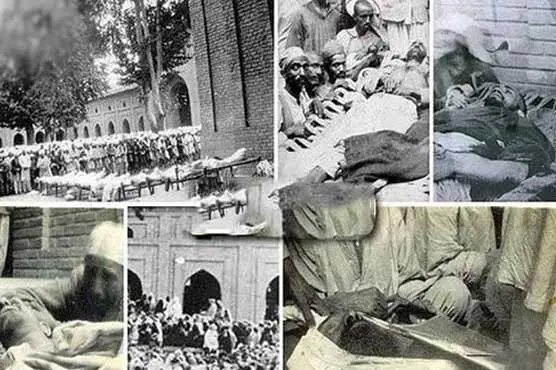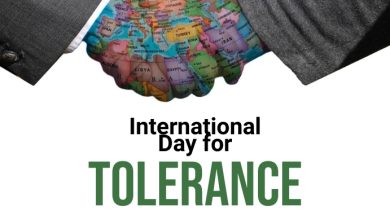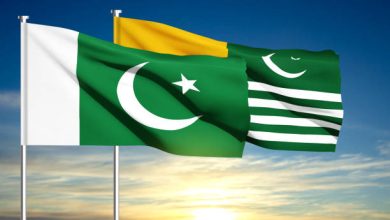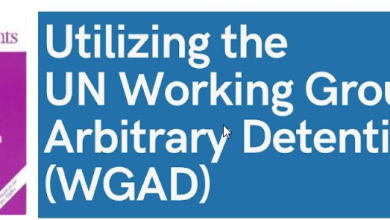
They may kill us, but they cannot kill our ideas. They can crush our bodies, but they will not be able to crush our spirit.
These words resonate deeply as we honour the 22 martyrs who bravely stood against the oppressive Dogra rule on July 13. Though their lives were tragically cut short, their indomitable ideas and uncrushable spirits continue to inspire generations in the pursuit of freedom and justice.
The story of Kashmir took a significant turn in 1846 with the Treaty of Amritsar, marking the transfer of power from the Sikh Empire to Dogra Maharaja Gulab Singh. This treaty, documented in various historical accounts, symbolized the beginning of Kashmir’s struggles under Dogra rule.

On July 13, 1931, thousands of Kashmiri Muslims gathered outside the Central Jail in Srinagar to protest the unfair and harsh rule of Dogra Maharaja Hari Singh. The catalyst for this demonstration was the arrest of Abdul Qadeer, a young preacher detained for criticizing the regime.
Historical records indicate that Abdul Qadeer’s arrest sparked widespread outrage among Kashmiris, leading to a peaceful protest that tragically turned violent when Dogra forces opened fire, claiming the lives of 22 individuals. This incident marked a turning point in Kashmir’s history, igniting a renewed struggle for human rights and self-determination.
July 13 is commemorated annually as ‘Kashmir Martyrs’ Day’ or ‘Youm-e-Shuhada-eKashmir,’ serving as a poignant reminder of the sacrifices made by these Kashmiri heroes. It embodies the Kashmiri people’s enduring quest for justice, freedom, and dignity.
As we reflect on Kashmir Martyrs’ Day, it is crucial to reaffirm our commitment to supporting peaceful and sustainable resolutions to the Kashmir issue. We must honour those who sacrificed everything for a cause greater than themselves and stand in solidarity with the Kashmiri people in their pursuit of peace and justice.
The call to prayer (Azaan) that began on July 13 continues to resonate across the ages, a timeless echo reverberating through the corridors of history. It is a voice for injustice, still heard today, weaving through the fabric of Kashmiri consciousness. It speaks of resilience and hope, carrying with it the unwavering belief that one day, justice will prevail and the dawn of freedom will illuminate the skies of Kashmir.”
(The writer is currently working at Legal Forum for Kashmir (LFK), Islamabad)








